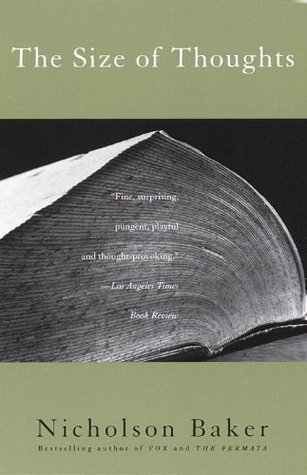What do you think?
Rate this book


372 pages, Kindle Edition
First published March 19, 1996
By the early '90s Baker had hit his stride as a nonfiction writer: he knew exactly the tone that would make readers shout with dismay about the wanton destruction of card catalogs by some of this country's finest, most user-centered research libraries. By then it was too late to save the objects of his ardor. However, reader response was so positive that Baker expanded his scope and began his current crusade to save newspapers and physical books, which he discovered were being scrapped as digital versions were made or simply to make room for more copies of Robert Ludlum and Sandra Brown.
"Books as Furniture," the essay that follows "Discards," takes an often-amusing look at the ways in which mail-order firms have used good-looking but obscure volumes as set decoration. If not for these two entries, I would have assigned The Size of Thoughts just two stars. Had they appeared in a volume all to themselves, it would have earned four. Proponents of PoMo, please take note.